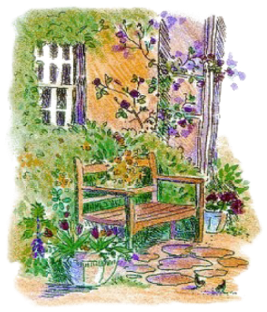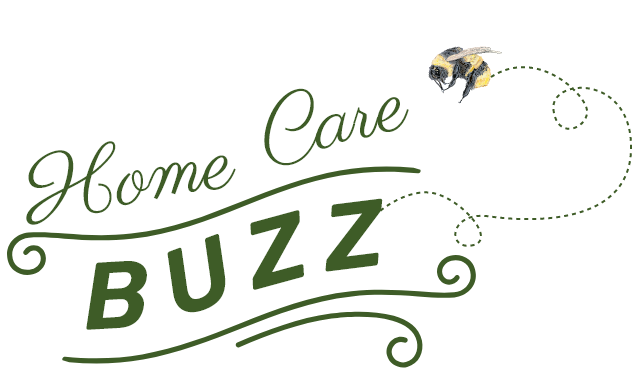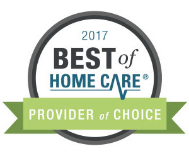Memories or Mess? When Seniors Struggle to Let Go

As our parents age, we may notice unexpected changes in their behavior or personality. These changes can occur gradually over time or suddenly and unexpectedly. One common change that surprises many people is when an elderly parent begins to accumulate belongings. I have witnessed this firsthand and heard countless stories from families sharing their struggles with an aging loved one’s overwhelming collection of possessions. Many families are often unaware of how much clutter has built up until it becomes a crisis.
While sentimental clutter is common among older adults, unchecked accumulation can lead to complicated family dynamics, safety concerns, and an overwhelming burden for the family after the person passes away.
A family recently shared a story about a Veteran who served as a Marine during the war. Discipline, order, and structure were his way of life—everything had its place, and his home was always meticulous. But as he approached his 80th birthday, things began to change. As family and friends visited him regularly, they noticed that his once tidy home had gradually become filled with personal items. It wasn’t piles of trash or broken objects but rather carefully placed possessions—old uniforms, letters, tools, and keepsakes, each with a deep connection to a person or moment from his past. Every available space was occupied, not with junk, but with memories. He wasn’t what many would consider a hoarder; there were no unsafe piles or hazardous conditions, but the sheer volume of sentimental items was concerning. Over the past few years, he had lost several close friends, and his growing attachment to these objects seemed to reflect his struggle with grief and loneliness.
A similar story involves a Navy Veteran who lived a happy and orderly life. His family described him as tidy, and he took great pride in keeping his home clean. However, as he aged, his habits changed. He began to buy items excessively, leading to a very cluttered house. He made excuses to avoid visitors, and after a cancer diagnosis, his home was deemed unsafe for his return. After his passing, his family found themselves sorting through his belongings to be overwhelming and emotionally exhausting.
Another family shared the story of an Army Colonel’s widow who had always maintained a spotless home. But after her husband passed, things changed. She began to overbuy groceries and struggled to throw anything away, filling her pantry with expired items while refusing to discard anything. As she aged and her mobility declined, her living situation became even more complicated. She primarily stayed in her bedroom, surrounding herself with items she wanted within arm’s reach. Though her family worried about her safety, she resisted any attempts to reorganize or declutter, leading to increasing concerns as she aged.
While keeping meaningful items is natural, an overwhelming accumulation of possessions—even those with sentimental value—can impact daily life. The question is: At what point does holding onto cherished memories become a burden? Additionally, how can loved ones help in a way that respects their loved ones’ emotions?
When Sentimental Clutter Becomes a Burden
Stories like these are common among aging veterans and seniors who struggle with clutter, making their homes less safe and increasing their feelings of isolation. When a loved one passes away, family members often have the daunting task of sorting through their possessions. Many don’t realize how overwhelming this process can be when things get out of control. The challenge goes beyond the physical labor involved; it also takes an emotional toll to sift through a lifetime of memories, make tough decisions, and uncover important documents that may be buried among everyday clutter.
Many families I spoke with shared the same sentiment: they wished they had brought in help sooner. Regular visits from a professional caregiver or home care provider could have helped the family be more aware of a potential problem before it became unmanageable. More importantly, it could have provided companionship, emotional support, and an extra set of eyes to recognize when behaviors were shifting toward unhealthy hoarding tendencies.
Why Do Seniors Hold Onto So Much?
Some of the most common reasons older adults struggle to let go include:
- Emotional Attachment – Items may serve as tangible connections to loved ones or past experiences, making it painful to let them go.
- Coping with Loss – As seniors lose friends, spouses, and siblings, holding onto objects tied to those relationships can bring comfort.
- Cognitive Decline – Some older adults struggle with decision-making, making it harder to sort through belongings.
- Fear of Needing Something Later – Many seniors grew up in times of scarcity, leading to a mindset of holding onto things “just in case.”
When Does It Become Hoarding?
Hoarding exists on a spectrum. Experts at Hoarders.com classify hoarding into five levels:
- Level 1 – Minor clutter, with no issues affecting function or safety.
- Level 2 – Some clutter, typically horizontal surfaces, countertops, and tables, mild disorganization.
- Level 3 – Excessive clutter, difficulty using certain rooms, perimeters of rooms fill encroaching on living space.
- Level 4 – Limited functionality and access to areas, unsafe living conditions, and noticeable odors.
- Level 5 – Severe clutter blocking exits and entries, fire hazards, pest infestations, and major safety risks. Odors can become so intense that neighbors complain.
How Home Care Can Help
If a senior loved one is struggling with growing clutter, a professional home care provider can offer valuable support:
- Regular Check-Ins – Caregivers can monitor living conditions and report any concerns or issues to the family.
- Compassionate Organization – Caregivers can help sort through belongings with patience, ensuring sentimental items are preserved while creating a safer, more functional space.
- Emotional Support – Caregivers provide companionship and help address feelings of loneliness or anxiety that contribute to hoarding behavior.
- Safety Awareness – Home care professionals can identify potential risks like fall hazards and fire dangers, ensuring a safer living environment.
Compassion Is Key
It’s important to understand that what might appear as clutter to some people can hold significant meaning for the individual who keeps it. Every object has a story, representing relationships, milestones, and experiences that have shaped their lives. Forcing seniors or anyone else to part with their belongings without considering the emotional impact can cause more harm than good.
Help should always be offered with patience and understanding. Instead of getting rid of everything, focus on creating a functional space while keeping the items that truly matter. As you go through the belongings, ask about the stories behind them. This can provide an opportunity to learn more about their history and help give closure when letting go. Letting them reminisce about memorable moments as they go through the objects can help ease the transition, allowing them to feel like they are honoring the past rather than losing it.
If a senior loved one is struggling to let go of possessions, it may be time for a conversation. Implementing small, gradual changes can make a big difference, allowing seniors to feel in control rather than overwhelmed. Whether through family support or professional home care assistance, they can maintain a safe, comfortable, and meaningful living space. A compassionate approach ensures they feel supported and respected while making their homes safer and more enjoyable.
Originally appeared on Veterans Care Coordination.

























